At the start of this week’s ISC High Performance conference, the Swedish e-Science Research Center (SeRC) is delighted to announce that it is Intel’s first oneAPI academic Center of Excellence (COE). The center will use oneAPI’s heterogeneous programming model to accelerate compute for research conducted with GROMACS, which will help advance solutions for some of the world’s biggest life science challenges. As part of this research, massive HPC simulations will be deployed leveraging CPUs and GPUs from multiple vendors (Intel, Nvidia, AMD) to achieve new levels of efficiency and performance.
GROMACS is a molecular dynamics software used by researchers all over the world, and one of the flagship codes developed by SeRC. It is used to simulate large biomolecules, and makes it possible to study how molecules such as proteins and lipids function on the atomic level, for instance when binding other molecules or to design new drugs targeting e.g. COVID-19. Simulation coupled with exascale compute allows scientists unprecedented visibility into the molecular mechanisms of life and provides a computational microscope that enables them to investigate what-if scenarios that would be difficult if not impossible to test in a traditional lab. Many biological processes studied by molecular dynamics (MD) are in the microsecond timescale. MD time-steps are around a femtosecond and therefore ~10^9 simulation steps are required. To finish a simulation in about a week requires each simulation step to be computed in under a millisecond. This is only possible with very efficient communication between CPUs and GPUs working together.
To achieve this, researchers at SeRC, KTH and SU work closely with many academia groups and educators from around the world, and also with Intel engineers on oneAPI software optimizations. According to Erik Lindahl, Professor of Biophysics at KTH & SU, “It is exceptionally important to us that GROMACS is able to make efficient use of all the fastest supercomputers in the world, and the upcoming Exascale machines powered by oneAPI will make it possible to simulate processes we could not even imagine a few years ago, such as how a virus binds to proteins on a cell and infects it.”
As a oneAPI COE, SeRC will pave the way for innovation by academia and industry by conducting research, building compelling applications and solutions powered by oneAPI technology, and leading the teaching of key findings over a multi-year effort. “The future of hardware is heterogeneous, which makes it critical to move towards open performance-portable APIs, and we are particularly happy with how the ecosystem from the start has been closely involved in the development and steering of oneAPI,” says Lindahl. Findings and best practices for software development will be shared across the broad academic community, and via Intel’s academic engagements with top educational institutions worldwide. Intel Corporation has provided support toward this effort.
The ongoing GROMACS research by the University of Stockholm/KTH promises new breakthroughs in biomolecular research that will enrich and enhance lives around the world. The oneAPI collaboration on this endeavor will enable developers and researchers to efficiently leverage full performance of diverse computing architectures with an open, unified programming model,” says Jeff McVeigh, Intel Vice President, Datacenter XPU Products and Solutions.





